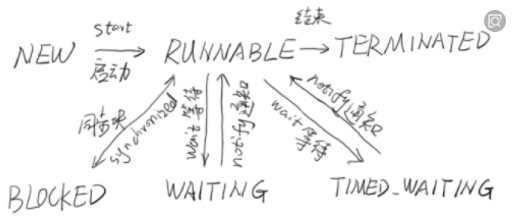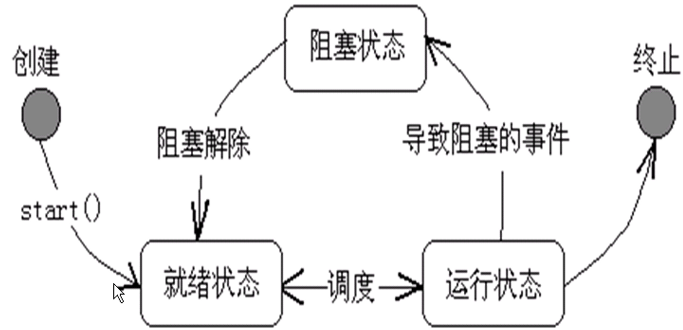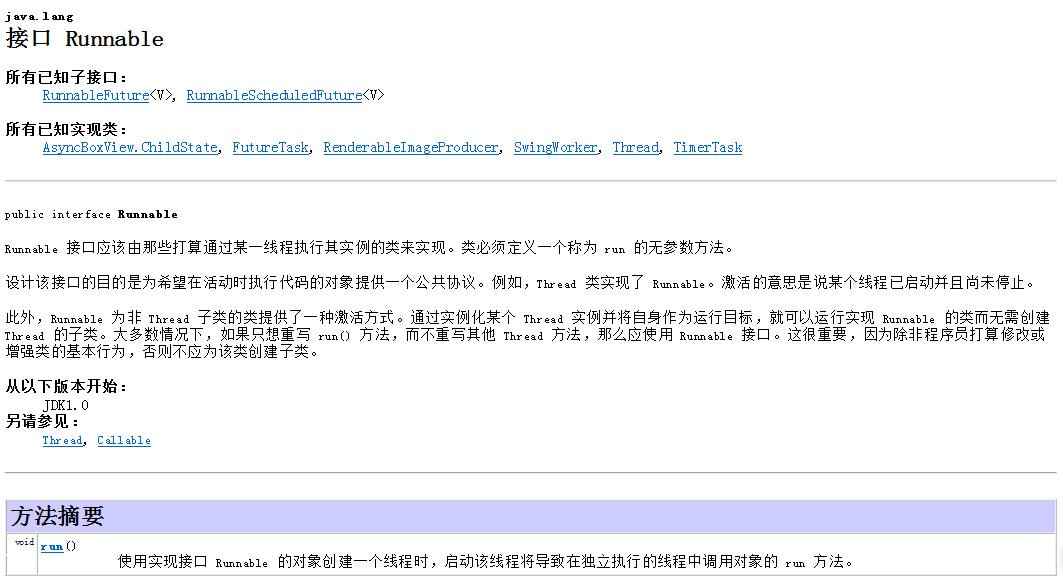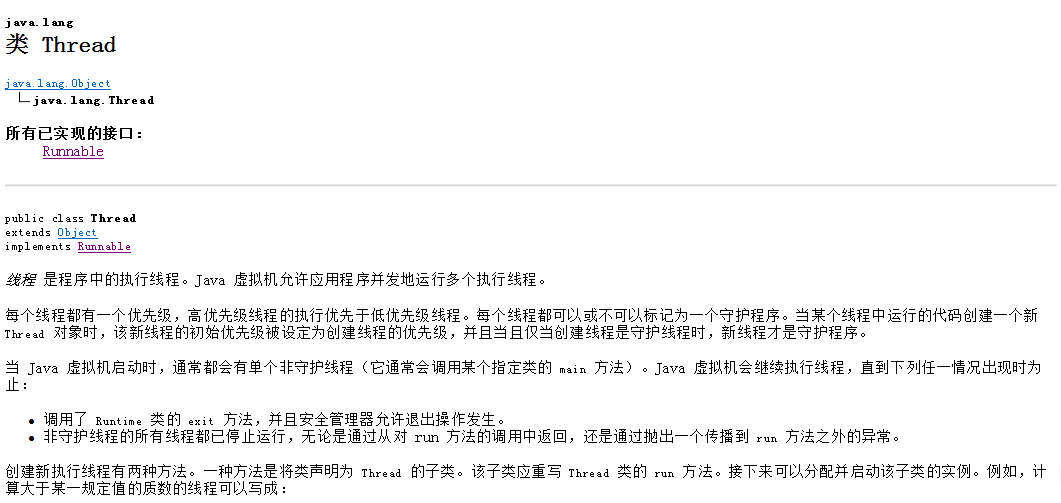线程是程序控制的一个内部数据流。线程的状态转化如下

或者

在java中创建线程有两种方式:
1.实现runnable接口(这个比较好,推荐这个。原因是:用的时候比较灵活,相比较继承Thread类,用接口来实现可以减少资源使用,比较继承也是一种宝贵资源,毕竟Java是单继承多实现)
2.继承Thread类(Thread类实现了Runnable方法)
利用Runnable接口启动线程的方法是:先创建Runnable接口的实现类,然后将实现类的实例作为参数传给Thread的构造方法,最后调用start方法。
利用继承Thread类来启动线程的方法是:先创建Thread类的子类,然后创建子类的实例,最后调用start方法。
两种方式均是利用Thread类的Start方法。

1 /** 2 * Causes this thread to begin execution; the Java Virtual Machine 3 * calls the <code>run</code> method of this thread. 4 * <p> 5 * The result is that two threads are running concurrently: the 6 * current thread (which returns from the call to the 7 * <code>start</code> method) and the other thread (which executes its 8 * <code>run</code> method). 9 * <p> 10 * It is never legal to start a thread more than once. 11 * In particular, a thread may not be restarted once it has completed 12 * execution. 13 * 14 * @exception IllegalThreadStateException if the thread was already 15 * started. 16 * @see #run() 17 * @see #stop() 18 */ 19 public synchronized void start() { 20 /** 21 * This method is not invoked for the main method thread or "system" 22 * group threads created/set up by the VM. Any new functionality added 23 * to this method in the future may have to also be added to the VM. 24 * 25 * A zero status value corresponds to state "NEW". 26 */ 27 if (threadStatus != 0) 28 throw new IllegalThreadStateException(); 29 30 /* Notify the group that this thread is about to be started 31 * so that it can be added to the group's list of threads 32 * and the group's unstarted count can be decremented. */ 33 group.add(this); 34 35 boolean started = false; 36 try { 37 start0(); 38 started = true; 39 } finally { 40 try { 41 if (!started) { 42 group.threadStartFailed(this); 43 } 44 } catch (Throwable ignore) { 45 /* do nothing. If start0 threw a Throwable then 46 it will be passed up the call stack */ 47 } 48 } 49 }
例子一:实现runnable接口
1 package com.song.test; 2 3 public class TestRunnable implements Runnable { 4 public void run() { 5 System.out.println("线程启动...."); 6 } 7 public static void main(String[] args) { 8 System.out.println("测试线程一...."); 9 TestRunnable test=new TestRunnable(); //创建实现类的实例 10 Thread t1=new Thread(test); //将实现类的实例作为参数传给Thread的构造方法 11 t1.start();//调用start方法启动线程 12 } 13 }
运行结果:

java的jdk1.6对java.lang.Runnable的解释

2例子二:继承Thread类
1 package com.song.test; 2 3 public class TestThread01 extends Thread { 4 public static void main(String[] args) { 5 System.out.println("开始执行"); 6 TestThread01 test = new TestThread01(); 7 test.start(); 8 } 9 10 @Override 11 public void run() { 12 System.out.println("用继承Thread的线程已启动"); 13 } 14 }
结果为:

使用的jdk1.6的解释为:

关于线程终止:是指除守护线程以外的线程全部终止,守护线程是执行后台作业的线程。当进入main方法中执行程序时就已经启动了主线程,在主线程执行过程中创建了另一个线程 A,且利用start()方法启动它,这时是启动两个线程,main线程和A线程。当main方法代码执行完毕,即主线程才为终止。但如果此时线程A仍在执行中,即A线程仍在运行状态不能说此时程序终止,也就是说所以程序均终止后,程序才能终止。
-----------------------------------------------------------------------------------------------------------------------------------------------------------------
能力有限,不喜勿喷,欢迎指错。
